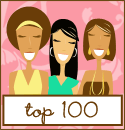1.LYE AND NO LYE (SODIUM/CALCIUM/POTASSIUM/GUANIDINE HYDROXIDE)
Used
in hair relaxers to make hair permanently straight. Powerful alkaline
and caustic ingredient. Used in cleaning products that help dissolve
debris including hair from drains.
FACT: Breaks the protein
bonds that give the hair strength. Depletes the scalp of sebum (natural
oils) and makes hair very weak and prone to breakage. If used
incorrectly, can cause severe damage to the scalp. Products that say
“no-lye” just substitute the sodium hydroxide with calcium or guanidine.
Found in: Chemical straighteners, soaps
2. SODIUM LAURYL/LAURETH SULPHATE (SLS/SLES) AMMONIUM LAURETH
SULPHATE (ALES). (any sulphate, for that matter)
Used
in 99% of all shampoos for foam. These are the same ingredients found
in many cleaning products such as floor cleaners and car engine
de-greasers.
FACT: Dries and irritates the skin and hair by
stripping it of natural oils. Prevents the natural regulation of
moisture. (Why do you think we have to use conditioner after washing
our hair?)
Found in: shampoo/conditioner, bar soap, body wash,
face cleanser, liquid hand soap, acne treatment, hair dye, mascara,
shaving products, moisturizer, toothpaste, sunscreen, makeup remover,
perfume, cologne
3.MINERAL OIL AND PETROLEUM/PETROLATUM
Used in many cosmetic products as a lubricant
FACT:
Derives from crude oil (the same ingredient used to cut metal!). Coats
the hair shaft and clogs pores thereby preventing toxins from being
released. This also prevents other ingredients to penetrate into the
hair shaft.
Found in: Almost every personal care product,
especially creams, lotions, hair products, wax depilatories, eyebrow
pencils, eye shadow, liquid powder, and lipstick.
4. PROPYLENE/POLYTHYLENE GLYCOL (PG/PEG)
Used
because it is called a humectant gives the product a firmer
consistency. Keeps product from melting in high heat or freezing when
it is cold.
FACT: Active ingredient in anti-freeze which is used
in car brake fluid. Strong enough to remove barnacles from boats! It
slowly destroys the protein and cellular structure and can lead to
dermatitis.
Found in: shampoo/conditioner, bar soap, body wash,
face cleanser, liquid hand soap, acne treatment, hair dye, shaving
products, moisturizer, makeup remover, toothpaste, sunscreen, perfume,
cologne, deodorant, toner/astringent, foundation, bronzer powder, nail
polish, lip products, eye shadow/pencil, and mascara.
5. DEA (diethanolamine), MEA (Monoethanolamine), & TEA (triethanolamine)
Used to adjust the PH balance
FACT:
These chemicals are already restricted in Europe due to the known
creation of carcinogenic compounds called nitrosamines. They are
hormone-disrupting chemicals that easily absorb into the skin.
Found
in: shampoo, body wash/cleansers, bath oils, facial cleanser, liquid
hand soap, bar soap, hair products, acne treatment, baby wash, shaving
products, body scrubs, foot odor/cream/treatment, deodorant,
moisturizer, and hair dye/spray.
6. ISOPROPYL ALCOHOL
Used as a cleaning agent and disinfectant
FACT: better known as rubbing alcohol. Known to dry out and break off hair
Found in: hair color rinses, hair products, body rubs, hand lotions, after-shave lotions, fragrances.
7. DIMETHICONE/COPOLYOL/CYCLOMETHICONE (and any ingredient ending in “cone”)
Used
as emollients (skin softeners), as lubricants, as thickeners, and as
volatile liquids that make coatings feel smooth, but evaporate without
leaving a greasy residue.
FACT: Coats the hair shaft thereby
preventing moisture from penetrating. Weighs the hair down and
contributes to build-up. They can accumulate in the liver and lymph
nodes and promote the development of tumors.
Found in: hair products, conditioner, shampoo and many other cosmetics.
6. (BUTYL; ETHYL; METHYL; PROPYL) PARABEN
Used as a preservative for a longer shelf live and to prevent the growth of mold and mildew.
FACT:
There is an ongoing debate as to harmful effects of these parabens and
whether or not they are carcinogens because they act like estrogen. The
fact remains they accumulate in the bloodstream.
Found in:
moisturizers, shampoos, conditioners, hair products hair styling gels,
nail creams, foundations, facial masks, skin creams, deodorants, and
baby lotions.
7. IMIDAZOLIDINYL UREA and DMDM HYDANTOIN
Used as a preservative.
FACT: releases formaldehyde, which can irritate the respiratory system and cause skin reactions among other things.
Found
in: moisturizer, styling products, shampoo/conditioner, hair
spray/dyes, anti-aging treatment, facial cleanser, sunscreen, facial
moisturizer, foundation, eye makeup, acne treatment, mascara, body
wash/cleansers, deodorant, concealer, exfoliator, powder, body scrubs,
bath oils/salts, eye/contact care, lip makeup, shaving products,
after-sun product, douche/personal cleanser, makeup remover/depilatory
cream/hair remover, liquid hand soap, nail treatments, pain relief
rub/ointment, and fragrance.
8. FD&C (Food, Drug and Cosmetic) COLOR PIGMENTS
Used to add color to products.
FACT: Synthetic colors made from coal tar. They contain heavy metal salts that penetrate into the scalp and skin.
9. SYNTHETIC FRAGRANCES
Used to make products smell appealing
FACT:
Manufactures are not required to list what the synthetic fragrances
are. Some ingredients may cause irritation and sickness such as rashes
and headaches to sensitive people.
10. YOU
A consumer just looking to make their body look and feel better
FACT:
Companies and businesses rely on your ignorance to continue selling
their products. Their main goal is to have the cheapest production cost
possible (using synthetic, artificial and chemically altered
alternatives) thereby increasing their profit margins. All of this is
done at the expense of your health and well being.
Found in: every corner of the world
Author: Unknown










.png)













.png)


































